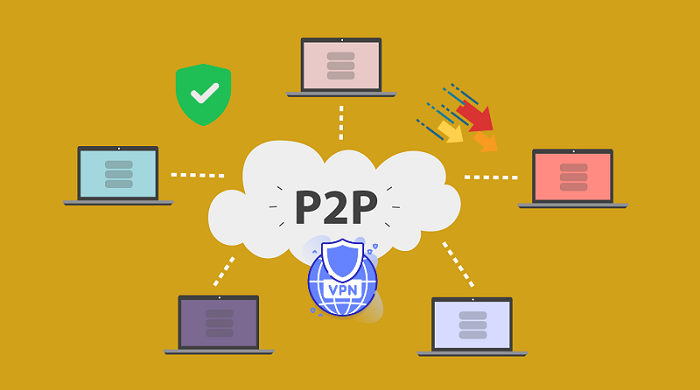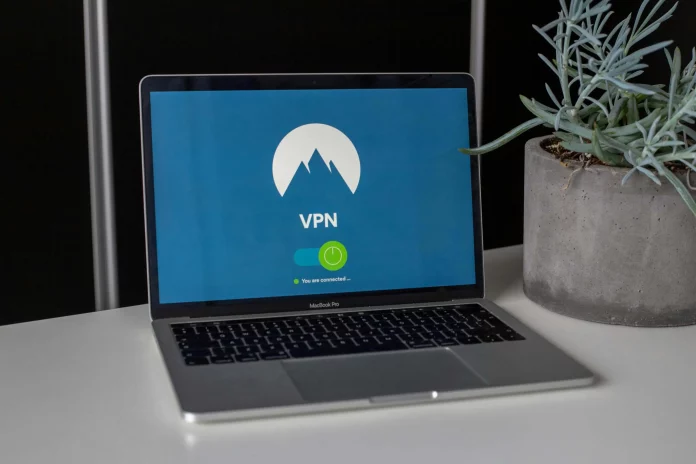Using a VPN in your IoT devices safeguards your data, but it isn’t always straightforward. You may face compatibility issues, performance impact, and setup complexities. Also, VPNs can introduce security vulnerabilities and bandwidth constraints.
However, there are viable solutions, like tailor-made IoT VPN clients, VPN optimization strategies, simpler configurations, robust security measures, and effective bandwidth management protocols.
Let’s explore further to find the best approach for you.
IoT VPN: An Overview
IoT VPNs encrypt data to provide enhanced security for your devices. They scramble the data your devices send and receive, forming a protective shield against cyber threats.
The underlying technology is complex, but you don’t have to understand every detail. What you should know is that a VPN makes your data unreadable to anyone without the right key.
On top of encryption, IoT VPNs also authenticate each device before allowing connection. This means your devices aren’t just randomly connecting to any network; their identities are verified first. This adds another layer of security.
Furthermore, VPNs secure human access to devices. This means that even if someone physically gets hold of your device, they can’t access the data without passing through the VPN.
IoT VPNs can also help contain the risks of data breaches. They’re especially effective when used with low-power IoT devices, like sensors and trackers, that might not have robust security features.
Whether you’ve installed an IoT VPN Japan or VPN US, it acts as a digital bodyguard for your devices, protecting them and the data they hold from a myriad of threats.
Importance of IoT VPNs

Beyond just encrypting your data, IoT VPNs keep your sensitive information confidential. They safeguard your IoT devices from IP address-based attacks, providing you with a layer of anonymity that’s critical in today’s perpetually online world.
Moreover, IoT VPNs provide end-to-end encryption, ensuring that your data isn’t exposed during transmission. This feature is essential, especially when dealing with highly sensitive data. It’s not just about keeping information private, but also about preventing unauthorized access that could lead to devastating data breaches.
IoT VPNs also play a pivotal role in helping you scale your IoT device clusters securely. As your operations grow and more devices are added to your network, it becomes increasingly important to maintain a robust and secure infrastructure. IoT VPNs enable you to do just that.
Diverse Options for IoT VPNs
There’s a diverse range of IoT VPN solutions in the market, each offering unique features and benefits.
Here are some of the most popular IoT VPNs:
- OpenVPN: This open-source VPN solution offers robust security and high flexibility. It’s perfect for connecting endpoints to networks and is compatible with various operating systems.
- IPSec: Ideal for network-to-network connections, IPSec provides a high level of security. It’s a great option for businesses with a large number of IoT devices.
- L2TP: Layer 2 Tunneling Protocol combines the features of PPTP and L2F. It’s commonly used with IPSec for added security.
- PPTP: Point-to-Point Tunneling Protocol is one of the oldest VPN protocols. It’s easy to set up but doesn’t offer the same level of security as newer protocols.
Overcoming VPN Challenges in IoT
Despite the numerous benefits, VPNs present certain challenges when used with IoT devices; however, these can be effectively overcome with the right strategies and tools.
One primary challenge is latency. VPNs, by their nature, can slow down your internet speed. To tackle this, consider using a VPN service that provides high-speed servers. Be selective, as not all VPN services are the same.
Another issue is the reliability of the VPN connection. Unstable connections can lead to data loss or breaches. Therefore, you should opt for a VPN with a proven track record of reliability and strong uptime guarantees.
Price can also be a hurdle. Premium VPN services may be expensive, especially for large-scale IoT deployments. Look for providers that offer scalable pricing plans fitting your needs.
The size of the VPN solution and the hassle of setting it up can be daunting. To mitigate this, choose a VPN provider that offers easy setup and user-friendly interfaces.
Lastly, security concerns are paramount. Ensure your chosen VPN uses robust encryption protocols and provides regular software updates.
IoT VPN Vs. P2P Solutions

When comparing IoT VPNs and P2P solutions, it’s crucial to consider factors such as security, latency, cost, and ease of use.
IoT VPNs provide a secure network by encrypting data, authenticating devices, and containing risks of data breaches. However, they might introduce latency and come at a higher cost.
On the other hand, P2P solutions offer an alternative with several advantages:
- Reduced latency: Data doesn’t need to travel through a central server, speeding up transmission.
- Improved reliability: The decentralized design means no single point of failure.
- Enhanced security: Data is encrypted, just like with VPNs.
- Cost-effectiveness: P2P solutions often come at a lower cost compared to maintaining a VPN.
Still, choosing between an IoT VPN and P2P solution isn’t a one-size-fits-all decision. It largely depends on your specific needs and resources.
For instance, if security is a top priority for you, a VPN might be the better choice. But if low latency and cost-effectiveness are more important, a P2P solution could be more suitable.
However, as with all tech decisions, it’s essential to consider your specific needs and circumstances. Often, a hybrid approach may be the best fit, combining elements of both VPN and P2P connectivity.
In the end, the right solution will depend on your unique network conditions, security requirements, and budget constraints.
Final Thoughts
Using a VPN for IoT devices is a smart way to secure your data and ward off cyber threats.
Challenges like high latency, setup complexities, and costs come with VPN usage in IoT devices. However, these can be overcome by using specialized IoT VPN clients, choosing a highly reliable VPN service, and finding a pricing structure that works for you.
Alternatives such as P2P solutions can also be considered, as they can offer benefits suiting different needs. It’s vital to assess your requirements and find a balance between security, speed, reliability, and cost when deciding between VPN or P2P solutions.
Your optimal choice may vary based on your unique network environment, security requirements, and budget, and could even involve combining elements of both VPN and P2P solutions.



































